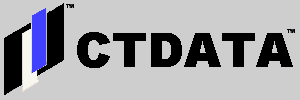Infoworld Articles Expose Contradictions of DMCA
The Digital Millenium Copyright Act (DMCA) is a cause célèbre in the international Web Development Community. Infoworld appears to have joined the debate with a pair of columns penned by regular contributors to its publication.
Sean Dugan points out the inheirent contradictions in the Motion Picture Association of America's legal position in his current "Net Prophet" column, concisely entitled I Guess the Only Solution if the MPAA Has It's Way is to Shutdown the Internet. P.J. Connolly takes a position somewhat to the right of Dugan in his current piece called The Sharing Debate: When Source Code is Outlawed Only Outlaws Will Have Source Code.
Both columns seem to be saying that the DMCA's provisions that attempt to provide an explicit definition of fair use, while also defining reverse engineering of a copyright protection scheme as illegal, render the law useless (or at least nearly so) in terms of its ability to be applied fairly by the judiciary in disputes between consumers and intellectual property owners.
We see these issues as part of a vast gray area on the Internet, made grayer by the attempt of national governments to apply laws extra-territorially. Perhaps the best solution would be for a court in the United States to declare the DMCA unconstitutional. But, that would not end the debate over how much control rights holders should have over the terms underwhich licensees use their intellectual property.
After reading these columns, you may find yourself wondering if any entity operating a search engine or a Weblog will be able to avoid some culpability under DMCA according to the position that one U.S. District Court seems to want to allow the MPAA to take. We certainly asked ourselves that question. Sean Dugan seems intent to bring the issue to a head by pointing out that many MPAA members are in violation themselves.
Nevertheless, there is a difference between identifying a problem with thievery in a society by identifying a crook, and being an accessory to theft. A trade association probably ought to be commended for its attempt to maximize its members rights under the law. But, neither the MPAA's current position, nor that of the most extreme leftists in the intellectual property debate, can be adopted by the Judiciary as an equitable legal standard.
